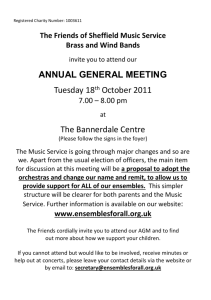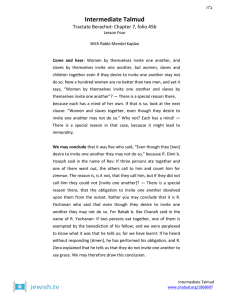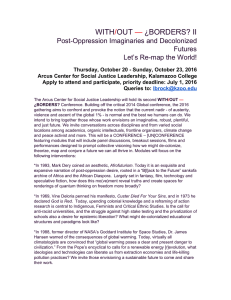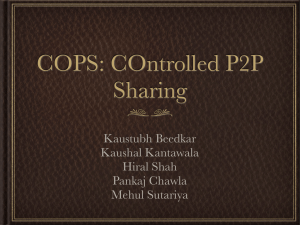Intermediate Talmud Tractate Berachot: Chapter 7, folio 45a-b
advertisement
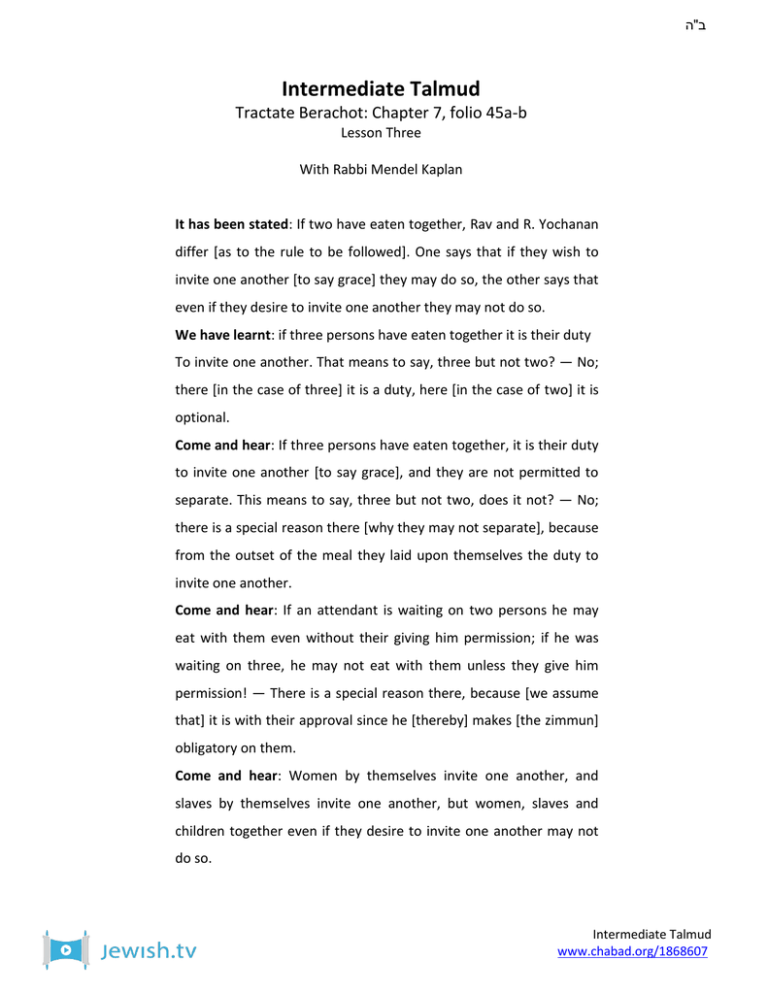
ב"ה Intermediate Talmud Tractate Berachot: Chapter 7, folio 45a-b Lesson Three With Rabbi Mendel Kaplan It has been stated: If two have eaten together, Rav and R. Yochanan differ [as to the rule to be followed]. One says that if they wish to invite one another [to say grace] they may do so, the other says that even if they desire to invite one another they may not do so. We have learnt: if three persons have eaten together it is their duty To invite one another. That means to say, three but not two? — No; there [in the case of three] it is a duty, here [in the case of two] it is optional. Come and hear: If three persons have eaten together, it is their duty to invite one another [to say grace], and they are not permitted to separate. This means to say, three but not two, does it not? — No; there is a special reason there [why they may not separate], because from the outset of the meal they laid upon themselves the duty to invite one another. Come and hear: If an attendant is waiting on two persons he may eat with them even without their giving him permission; if he was waiting on three, he may not eat with them unless they give him permission! — There is a special reason there, because [we assume that] it is with their approval since he [thereby] makes [the zimmun] obligatory on them. Come and hear: Women by themselves invite one another, and slaves by themselves invite one another, but women, slaves and children together even if they desire to invite one another may not do so. Intermediate Talmud www.chabad.org/1868607
